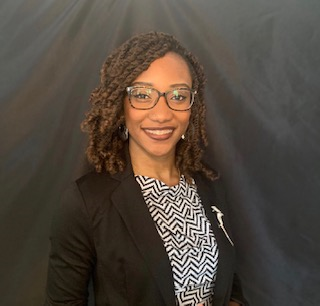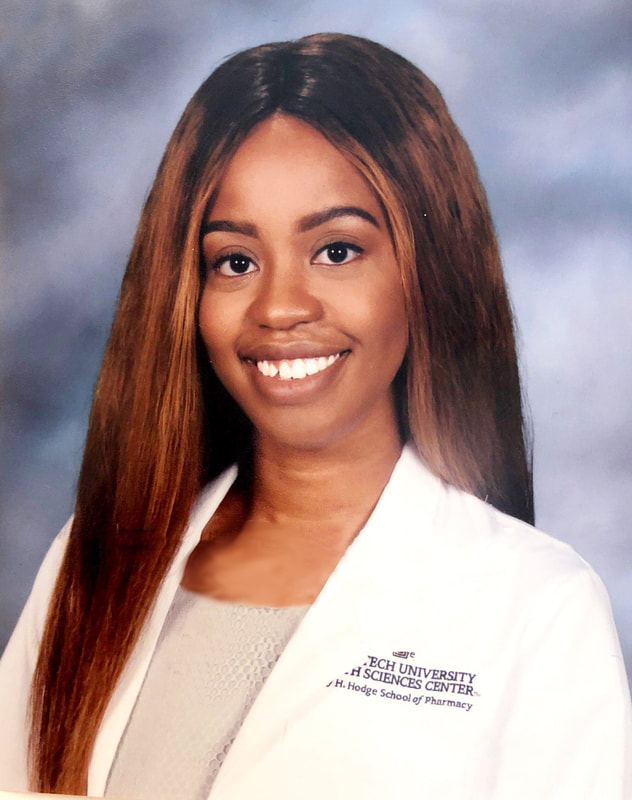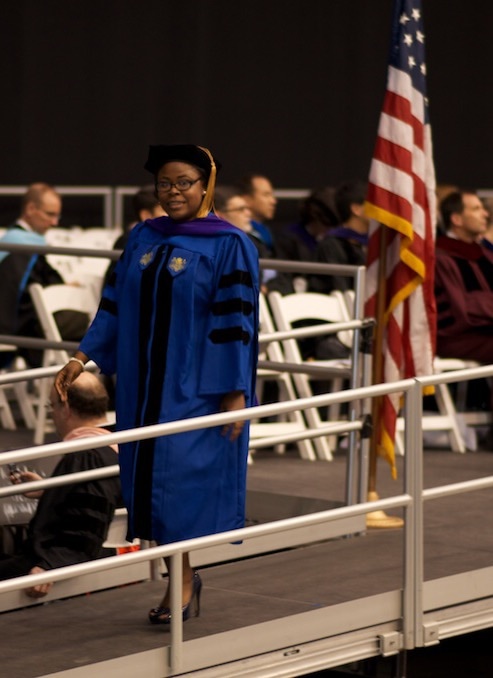|
Dear First Gen, The #coronavirus turned the world upside down. Academic institutions were rocked by a sudden public health emergency and were encouraged to shutdown to mitigate the spread of the virus. Colleges and universities canceled in-person classroom instruction and switched to online/distance learning. Students who never took an online course were forced to learn in this way and communicate with professors through online platforms. The coronavirus pandemic also changed the structure of graduation ceremonies, summer placements, and athletic trainings. The lives of ALL students were abruptly altered. Students reacted in so many ways by changing how the process new information, study, organize, connect with fellow classmates, apply to internships, interview, and etc. We interviewed three students and asked them to share their perspective on how they are reacting to #COVID19. Our guests and topics were:
At the end of the interview series, the conversation weaved into a theme of balancing school obligations and personal needs. Click on the images below to watch the interviews. Enjoy! Fellow Riser, Irnande ***Disclaimer: 2020. All rights reserved. All data and information provided on this site is for informational purposes only. No reproduction of any content on the website without the express permission of the author. The text, pictures and videos are the sole property of FirstGenRise.
3 Comments
 Dear First Gen, For as long as I can remember, I was so excited at the thought of being a first-generation college #graduate. Before I knew it, my final semester was coming to an end and it was almost time for me to start my new life. Thankfully, the week before graduation, I accepted a job working at a high school in Mississippi. I would not start my job for a couple of months, but that was cool with me. I could use a nice summer break for a change! While I was looking forward to what I’d be doing in the months to come, I was struck with the fact that I had no immediate plans until it was time for me to move. I literally did not even know where I was going to lay my head for the next few months. I was certain though that I was not going to move back home because a large part of me was concerned that I’d be taking a step back. I was too worried about other’s thoughts of me having failed because I was back home. I was frantic the week of #graduation because everything was happening so quickly. Not only did I need a place to stay, I would also no longer be employed at the place where I’d been working since my freshman year of college. I remember feeling so doomed at this point because graduation was now only a few days away and I really needed to pull it together. I was getting scared because it started to hit me that I would no longer have access to a residence hall, cafeteria, or safe place. I would no longer be a part of the campus community and would lose quick access to my professors and mentors. While I had a laptop, I was going to have to give it back because it was only loaned to me as a part of my accommodations for being an Honors College student. I had no idea where my money was going to come from or where I’d get my next meal. I was losing all sense of security that I’d had for 4 years and it felt like a small crisis. However, I knew that it was on me to take care of my business and myself. Two days before graduation, I was chatting with my sorority sister—who was also about to be a first-gen college grad—about her plans for summer and she was as frantic as me about not having a place to stay. We decided to take the little money we had and split a cheap two-bedroom apartment until it was time for me to move to Mississippi. I don’t recall how she found the place, but we submitted an application that day and found out the next day we’d been approved. As soon as she got the call, we hurried over to pay our deposit and pick up our keys. (Oh, gosh! I was a real adult!) Moving after the graduation ceremony was pretty easy for us since we had no beds, dining table, kitchen utensils, couch, food in the fridge… nothing. Yet we had a place to stay and that was better than just a few days prior. Eventually, we started accumulating furniture: I bought a blowup bed from Walmart and we got a couch that had been donated to us. Soon, my sister got a table from Walmart that we put together in one night. Our groceries were often milk and cereal, eight-piece chicken from Walmart, spaghetti, and tacos. It wasn't glamorous, but we were fresh out of college and we didn’t want for much, so we were good. I also got a temporary job with my old employer and was able to work for a month until I relocated. Looking back at that time of my life, I often laugh because while I had a college degree, my life didn’t look anything like what I thought it would. See, having a degree doesn’t mean that all of your challenges, financial or otherwise, are going to magically disappear. However, I learned quite a few lessons and some I’d like to share with you:
The world is big and learning to face it can be scary; however, there are so many people who have traveled a similar road, so don’t ever doubt that you’ll be just fine. No matter the situation you’re faced with, trust that you’ll figure it out. Fellow Riser, Dr. Eve Hudson (Host behind The First-Gen Lounge) ***Disclaimer: 2019. All rights reserved. All data and information provided on this site is for informational purposes only. No reproduction of any content on the website without the express permission of the author. The text, pictures and videos are the sole property of FirstGenRise.  Dear First Gen, The majority of college students graduating today have one thing in common, regardless of their degree: student loan debt. While some are fortunate enough to attend college without having to take out any loans, the majority of American college graduates end up owing seemingly insurmountable debt to lenders. When I graduated more than 10 years ago, Sallie Mae was the leading lender. Today, Sallie Mae has been joined by Great Lakes, Nelnet, and Navient. It seems that almost every day, there is a new article reporting that #studentloandebt is a factor in #millennials delaying buying homes, getting married, starting a family, or growing a business. Some have even chosen to put off saving for retirement to focus on paying their student loans. The Good Ol’ Days I will never forget a conversation I had with a former neighbor. She and her spouse had both graduated from a state law school in the 1990s, and their combined student loan debt totaled just $55,000. I was shocked to hear that number. I could never imagine a graduate today walking out of law school with such a low amount of debt. She went on to tell me that they paid off their loans in just 5 years. The first few years, they kept their expenses low by living modestly. They also made the career decision to work in the public sector before moving on to work in “big law” for leading corporate law firms. The Times They Are A-Changin' On the other hand, when I graduated from college in 2007, I entered the “real world” with what I thought was a manageable $25,000 of student loan debt from my 4-year degree. Then I went to Georgetown for a 1-year master’s degree program and graduated with an additional $33,000 in debt. I kept my costs relatively low by living at my parents’ home, taking a carpool bus to school, bringing my lunch with me, and working a graduate assistantship. Others in my master’s program cohort took out double my amount because they lived in Washington, DC, and needed money for housing and more. That meant that many of them graduated with at least $60,000 in debt from a one-year graduate program. I figured mine was still a manageable amount of debt since it was a total of less than $60,000. However, I finished my program in 2008 during the recession and it’s not an exaggeration to say that no one was hiring. I worked two part-time jobs to pay my bills. But then I tacked on even more debt when I went to law school. I will be paying my student loans for years to come. A Little Financial Planning Goes a Long Way Why am I sharing this with you? I believe in getting as much information as possible to be sure you're setting yourself up for success down the road. It is important to know exactly how much you need to borrow to get your desired education. Then you can borrow the very least amount so you are not swimming in debt, do not have to delay future milestones like buying a house, traveling, or becoming a parent, if those will be priorities for you. A little financial planning goes a long way in paying off student loans. A few young people I have recently met shared that they have not begun paying their public student loans back because they are paying for the private loans they took out first. Another friend who graduated law school with me had more than $100,000 in student loans from two private institutions, yet paid off their #lawschool debt in less than 4 years. This person did make a six-figure income, but they also lived very modestly by limiting travel, shopping at discount grocery stores, finding inexpensive rent, and so on. Luckily for this person, the amount of compounded interest was limited because of the timing of paying back the loan. In many cases, graduates pay a lot in interest before they can pay any chunk of the principal. If you’re just starting to look into loans, I may be using terms that are new to you. Check out Student Loan Hero for more information, and do not be overwhelmed. I have come across many good resources that may be helpful to you. Podcasts – Brown Ambition Paychecks and Balances Trailblazers.FM Blog Posts – Student Loans: Everything you Need to Know Your Money Worth The Student Loan Debt Movement Tools – How to Create a Loan Amortization Schedule As a first-generation college student or graduate, there is a lot of information we are not privy to because no one in our families has gone through it before. That's why I’m here. These resources will get you started on how to plan for the financial implications of a #highereducation. Whether you are just starting the process of applying for grants and scholarships or you are debating whether to accept a job that offers student loan repayment assistance benefits, thinking about all of this will help you plan a little better. Fellow Riser, Irnande ***Disclaimer: 2019. All rights reserved. All data and information provided on this site is for informational purposes only. No reproduction of any content on the website without the express permission of the author. The text, pictures and videos are the sole property of FirstGenRise.  Dear First Gen, To succeed in higher education, studying and getting good grades is not going to be your only responsibility. When you attend a university or college, you will need to interact with several administrative staff. The most obvious of these will be your academic advisor and the career counselor. But to expand your network and to gather more information about the world that awaits you after graduation, it is to your benefit to speak to a few more people that have a specific focus on student success. Let’s talk about the discussions you should have with each of these people. 1.Academic Advisor: When you select your major, you will be assigned an #academicadvisor to help guide you through the requirements of your major, including the mandatory course sequence to earn a degree, as well as optional or elective courses that may be more tailored to your specific career goals. You and your advisor may become acquainted quickly through regularly scheduled meetings to ensure you are on track to graduate on time. Occasionally, the requirements for your major could change from year to year, so you want to make sure you are referring to the correct course catalog and do not encounter any surprises from not regularly speaking to your advisor. 2.Career Counselor: This relationship could be very necessary for a first-generation student looking to increase their opportunities for employment or acceptance into a program that would further their education. Career counselors are specifically trained in this area, and I elaborate on the value and urgency of this visit in another post. 3.Students Affairs: Most students won’t visit this office unless they have an urgent situation that needs to be addressed, such as a request for a disability accommodation or a conflict at the institution. However, this office is often responsible for assisting with student organizations, hosting events on campus, and inviting special guests. This office delivers a #global experience to you, often without even leaving the campus. This office’s goal is to support your learning, growth, and development. Engaging with the staff in this office will help shape your experience at that institution. 4.Board of Trustees: The idea of meeting with the Board of Trustees was suggested to me by a colleague who is also a first-gen student. He explained that he learned about the opportunity for his current job after securing a meeting with a in his industry. During that meeting, he had a candid conversation about the path he should pursue to become a key decision-maker. That conversation helped him chart his course to become his company’s chief government affairs spokesman quickly. Members of most college’s boards of trustees are frequently high-profile, influential individuals. Not only can they bring in a considerable amount of money to the university, but they are often change agents in the community and have a wealth of knowledge to share. When possible, forging a relationship with a board of trustees member can help you gain access to expertise that may benefit you when trying to plot your own path to success. 5.Faculty Advisor for a Campus Organization: If you’re involved in a campus organization like student government or campus media, there will be a staff or #facultyadvisor assigned to guide the students. Often, even if this person is a professor, they serve in a different capacity in these advisory roles, and are able to be a bit more and personal with the students in the organization. This individual may be someone you want to have more personal conversations with regarding classes, professors, administration, students, or your future, especially if the organization is related to your career goals. Of course, these are not the only appointments you should schedule or people you should form relationships with at college. But they will give you a jump start on how best to approach your education. The more people you can speak to and learn from, the better your future outcomes will be in the field you aspire to work in. These conversations can be vital to obtaining the “rules of engagement” to succeed academically and professionally. Fellow Riser, Irnande ***Disclaimer: 2018. All rights reserved. All data and information provided on this site is for informational purposes only. No reproduction of any content on the website without the express permission of the author. The text, pictures and videos are the sole property of FirstGenRise.  Dear First Gen, There was a time when I did not get so ANXIOUS about writing. There was a time when I was confident about my writing skills and yearned to learn different styles of writing. There was a time when I wrote poetry. Then, I slowed down and no longer was excited. I still write....for work and message cards, but with great TREPIDATION. However, recently, my #self-doubt slowed down when I discovered #grammarly. @Grammarly has helped me to feel more confident when I send emails, drafts, newsletters, etc. If you would like to learn more, click here. In the recording below, I share a few stories from my youth and adult years that continue to remind me of my WRITING FEARS. My writing has developed and Grammarly has helped to identify errors and offer suggestions to improve the flow. I recommend this tool if you are looking for a proofreading source and some CALMNESS to your nervousness. Tell me: Do you have moments of discomfort when it comes to your writing? Do you agonize over every word and sentence before you hit send or share your writing with others? Fellow Riser, Irnande
***Disclaimer: 2018. All rights reserved. All data and information provided on this site is for informational purposes only. No reproduction of any content on the website without the express permission of the author. The text, pictures and videos are the sole property of FirstGenRise. Dear First Gen, On July 31, I was invited for a "Meet the Author" event by one of the Assistant Directors of the #JohnsHopkinsUniversity Hop-In Program. In the audience, there were first-generation college students in JHU's class of 2022. Before this day, I was pleased to learn that the program assigned my book, "The Rise of a First Gen" as required reading. The students asked amazing questions that centered on my mindset while navigating “two worlds”, adjustment to new environments, and strategies for certain transitions as a college student and professional. Each of the students had a capstone project and one of them chose to create a video. She self-narrated her childhood up to her current life as a first-generation college student at a prestigious university. Watch the video below! #Filipina #Filipino Tell me: What resonated with you in her story? How would you tell your own story? Fellow Riser, Irnande ***Disclaimer: 2018. All rights reserved. All data and information provided on this site is for informational purposes only. No reproduction of any content on the website without the express permission of the author. The text, pictures and videos are the sole property of FirstGenRise.  Dear First Gen, In my book, The Rise of a First Gen, I suggest that students should “Learn their #professors.” I mentioned this because it is a common belief among First Gens that, “As long as I do my best, I should get good grades.” This is partially true, but reaching out to professors to know their teaching and #gradingstyle will help you out, too. So what is the best approach to building a good relationship with your professor? They make it really easy on you by holding office hours. I learned the value of office hours firsthand when I was in college. I had performed poorly on an exam and was in a state of panic about how to improve. To ease my concerns, I went to speak with the professor during her office hours. Professors have so much information to teach in a short semester that it is rare to have days to ease into the teaching techniques or the syllabus. Luckily, #officehours exist on day one and you can get to know the mind of your professor in that setting. Now available is the "Master your Professor's Office Hours" eBook. (click image) This checklist will help you master your office hours so you and your test scores can rise. Fellow Riser, Irnande ***Disclaimer: 2018. All rights reserved. All data and information provided on this site is for informational purposes only. No reproduction of any content on the website without the express permission of the author. The text, pictures and videos are the sole property of FirstGenRise.  Dear First Gen, When I think about my journey, I am reminded that I did not arrive where I am today on my own. There were a few amazing advisors and mentors that guided me along the way. They offered me good advice that I share with my interns and others I believe would benefit from the information. But it wasn't always easy to find a good mentor, either. There were instances when I sought someone to be my advisor/mentor and it yielded great results. Other times, I had to kindly distance myself from people because I no longer saw a benefit to our relationship. When I was a student, my assigned career advisors served me well. I remain connected with a couple of them to this day. But there were several times I decided to venture out and speak to the head advisor. In college, I attempted to meet with different advisors because they rotated in and out of the positions. I needed to meet with several of them so they would know my needs and be able to assist me when someone else was not available. In this case, I couldn't have a “regular” advisor. I made it a point to meet with the Dean of the Career Development Office in undergrad because this individual was consistent and possessed invaluable information, like access to off-campus positions I needed for my field placement courses. In law school, I scheduled advising appointments with the Dean of the Career Development Office as well. He had expertise about positions I was seeking and told me about the school’s reciprocity policy, which I used even after I graduated. My meetings with him were always helpful and I usually went to him even after I had met with the other advisors if they were unable to help me in the way I was looking for. Whether I wanted to know how to work in a judge’s chamber or for a non-profit, locally or in my home state, my initial meeting with an advisor often clued me in how our working relationship would work. I became a good judge of not only who would be accepting of my numerous questions, but also who would give me a thorough explanation. I was looking for specific and actionable advice on the process or strategies to improve my chances of getting an internship or securing a job. The common thread among each advisor I encountered was their willingness to help upon seeing that I was eager to be guided. They understood that I would not stop seeking their help until I obtained the results I was looking for. I sometimes learned after the fact that they talked with one another to find a different approach for helping me reach my goal. Over the past 10 years, I have identified a key characteristic I look for in an effective mentor: their openness to serve as a mentor. Dear First Gen,
(This is a chapter from the book, "The Rise of a First Gen".) For many years, I could not forgive them. I was too upset with them for what they did. It began in 3rd grade when I was introduced to the violin. I had violin classes during my math class and I loved it. I learned how to play the strings and reveled at the music I was playing. I was given my own violin to take home and practice when I had free time. My enjoyment turned to sadness when my math teacher told my parents that my grades were slipping. They told me we did not come to America for a low academic performance. My parents did not have a conversation with me or give me a chance to improve. I was simply removed from violin class and my violin was returned to the music store. No longer could I learn the melodies that brought a smile to my face. No longer could I develop the skills to play a musical instrument.  Dear First Gen, I graduated from Hofstra University School of Law in 2012. In a previous blog post, Four Years Ago, I shared how I almost stopped after my first year of law school (1L). For those students who finished their second (2L) or third and final year (3L), here are some things I wish I had done, and others I am happy I did do:
Good luck to all my #futurelawyers! Fellow Riser, Irnande ***Disclaimer: 2017. All rights reserved. All data and information provided on this site is for informational purposes only. No reproduction of any content on the website without the express permission of the author. The text, pictures and videos are the sole property of FirstGenRise. |
|
||||||





 RSS Feed
RSS Feed